TWIN PEAKS: THE RETURN Review
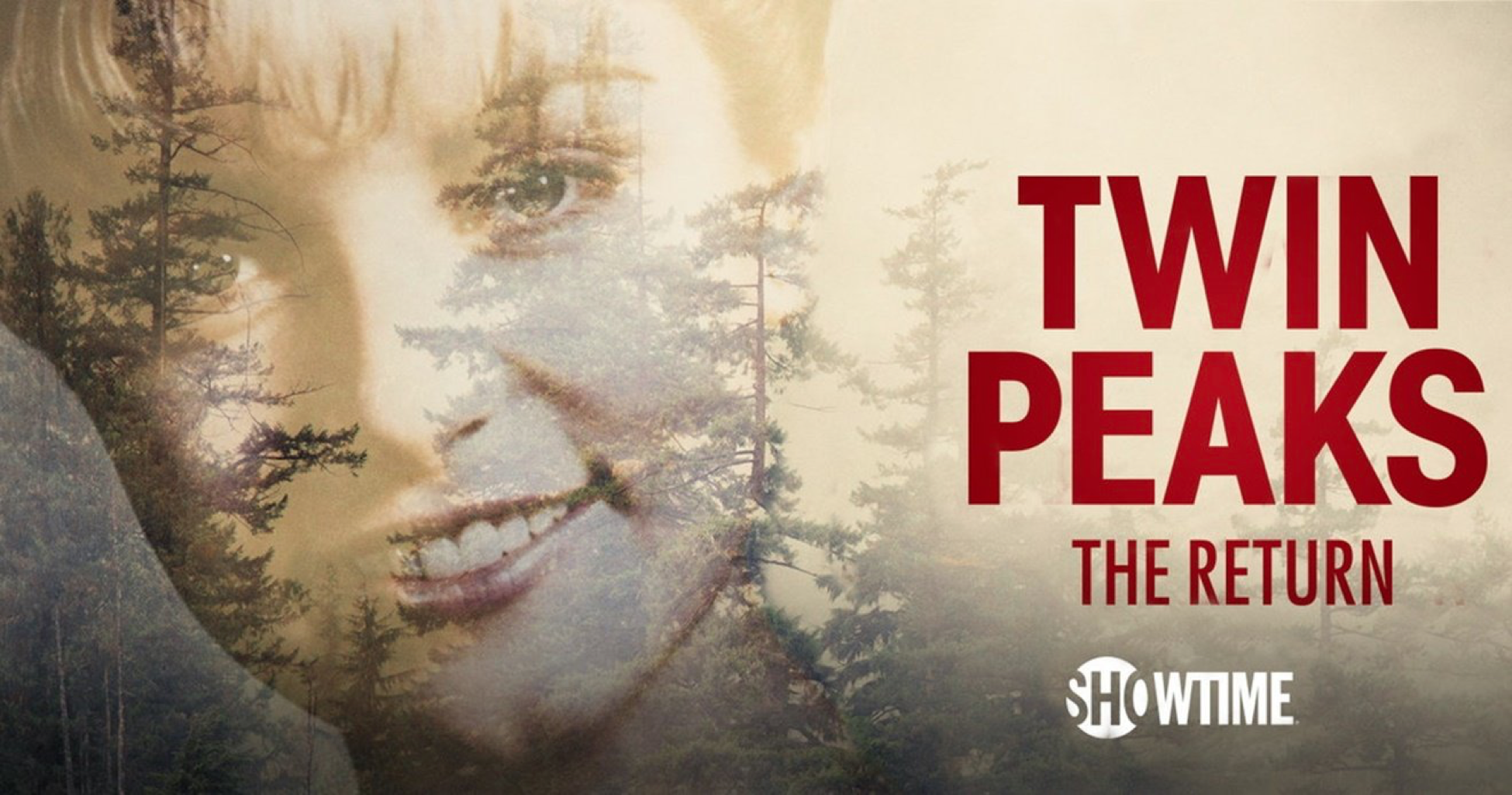
I sat staring at the screen following the finale of TWIN PEAKS: THE RETURN’s final episode for an uncomfortable amount of time , wondering how exactly I was going to unpack that. Days removed from the closing scene, I’m still stumped as to what exactly happened, but there was never a second where David Lynch’s intent was in question. This is a cruel show, one that openly mocks television, fandom, and in typical Lynch fashion, convention. For all the quirk and camp of the original, TWIN PEAKS was defined by its horrifying bookends, and this new iteration is no exception. There is fun to be had throughout, but this return will ultimately leave you with more than a few knots in your stomach after the credits roll.
25 years have passed since we last visited Twin Peaks, Washington. The sword of time has left none unscathed. Most of the returning cast are hardly recognizable; the Douglas firs remain as vibrant as ever, but the humans they surround have all withered and greyed. For the viewer, the quarter-century wait was a break in the action. There were other shows to watch in the meantime. The cast, on the other hand, had to keep living their lives. You get a tangible sense from THE RETURN that ages have passed, and I’m not talking about the decaying actors. Everyone is still stuck in this dead-end country town, and their lives haven’t taken them anywhere that they or the audience hoped they would. Twin Peaks may be fun to visit for an hour every week, but this post-recession follow-up makes it clear that you’d never want to live here.
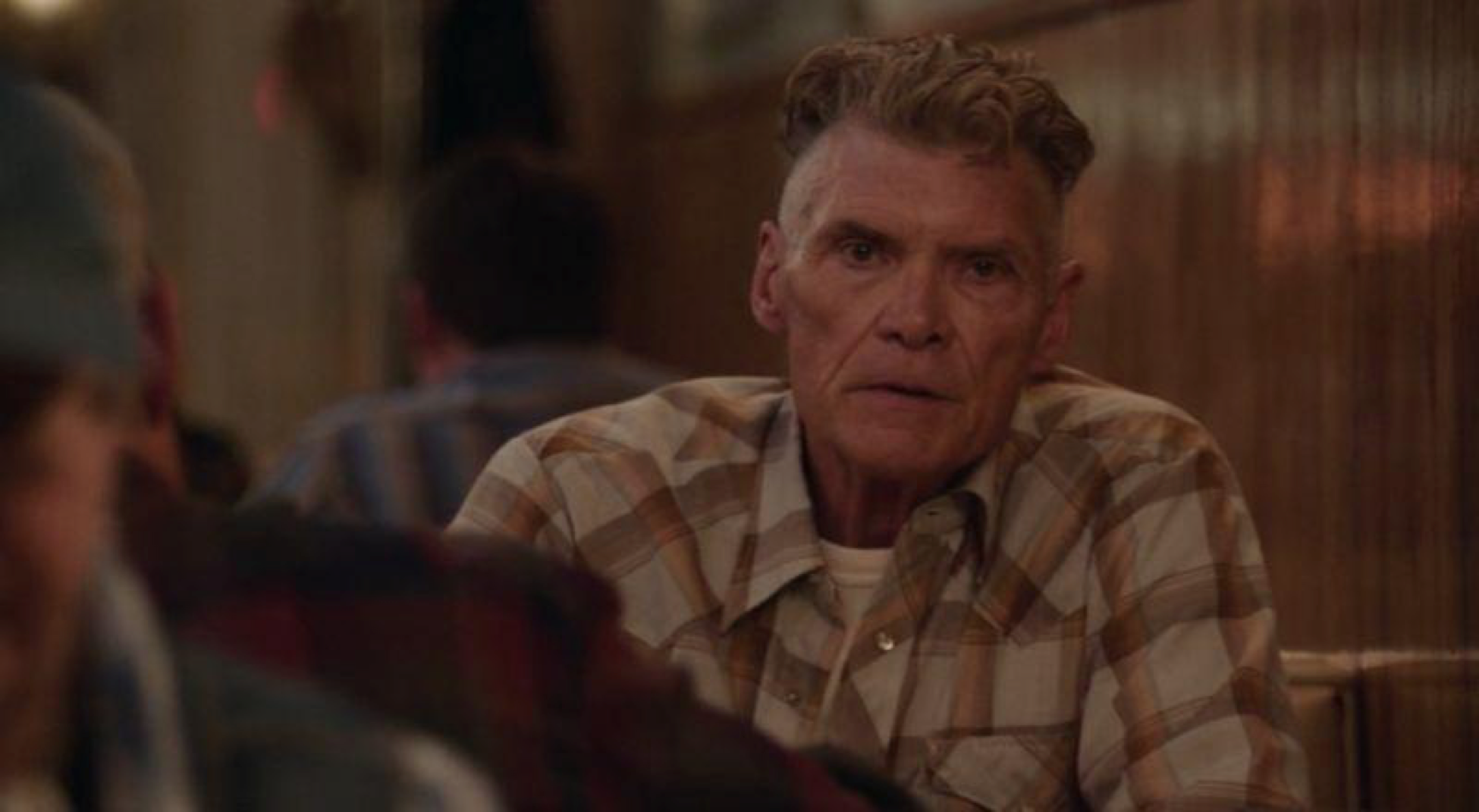
Trust me, it’s not the coffee
Fortunately (or not), THE RETURN doesn’t spend long in its namesake. The majority of the screen time is divided between Las Vegas, the Midwest, and that evil dimension the Black Lodge exists within. While there is some contention regarding whether this absurdist epic is a revival, the belated third season of the original, an 18-hour movie, or any combination of the three, one thing is made immediately clear: this is anything but fanservice. If you preferred Mark Frost’s grounding elements to Lynch’s more deranged vision, if you were hoping to find out what happened to your favorite couples, if you came here looking for more soap . . . THE RETURN will disappoint you. One would not be remiss to think this show was TWIN PEAKS in name only, so little does it share with its progenitor in terms of scenario.
In truth, THE RETURN is more akin to follow-up film FIRE WALK WITH ME than the OG television series. This isn’t because of the heavy involvement of David Bowie’s Phillip Jeffries, the odd cameo from that movie, pulling the strings behind the scenes, nor is it due to the similar focus on horror and the supernatural. Rather, it’s Lynch’s sheer influence over the work that is most reminiscent of that cinematic venture. I still suspect some degree of lampooning was involved, but Lynch has stated that he believes THE RETURN should be viewed as a film in 18 parts. A movie pushing three hours is pretentious enough as it is, let alone one that lasts longer than most folks spend awake in a day.
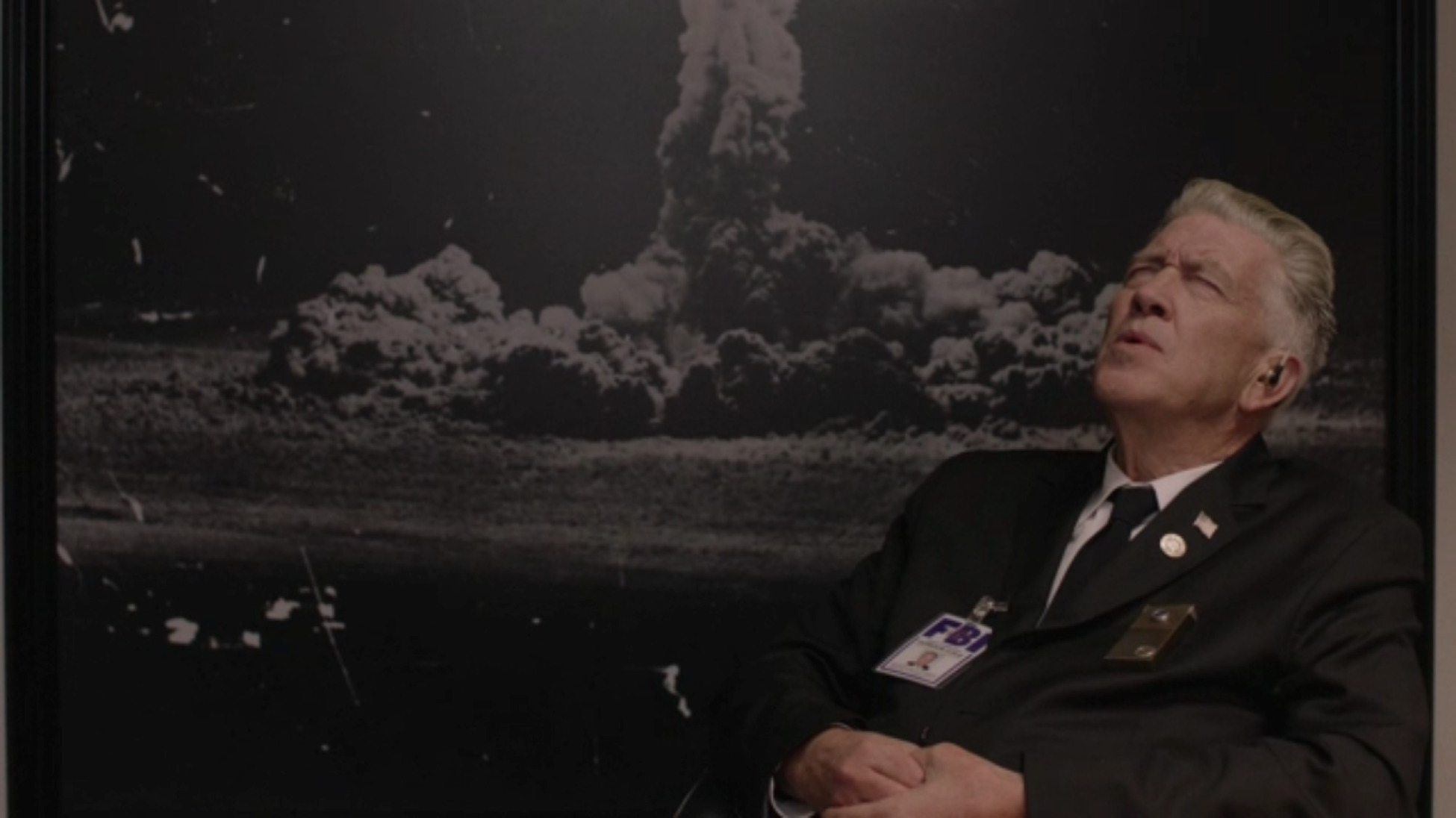
Still love you, David
Foppish or not, this classification is merited. Lynch’s presence in THE RETURN is felt far more acutely than anything on TV today, or even than in his original crack at the small screen. Anyone who watched TWIN PEAKS will recall, usually with a groan, the second season slump, where it was quite apparent that both showrunners had taken a hands-off approach. The fact that Lynch retains full authorial control over every episode of THE RETURN is oppressively obvious for every second it lasts. This is all Lynch, all the time. Every awkward pause, every lazily rendered visual effect, every stilted line delivery: that’s the big man calling the shots. Lynch even gets to dominate in front of the camera as well as behind it, his character Gordon Cole assuming far greater importance to the plot this time around. The only other person in Hollywood that can claim the same is the Sandman himself.
Pulling back to those who would say this show uses the Twin Peaks name only to get greenlit—not only does THE RETURN capture the true essence of Lynch’s original vision, it is the definitive version of it. This is the show Lynch wanted to make in 1990, the one that TV wasn’t ready for yet. This time Frost is only along for the ride, his yoke no longer required. This time, there’s no nervous chuckle to accompany the incomprehensible outburst. THE RETURN is a challenging watch. It’s often grueling, and completely unafraid of stretching the audience’s patience to absurd limits.
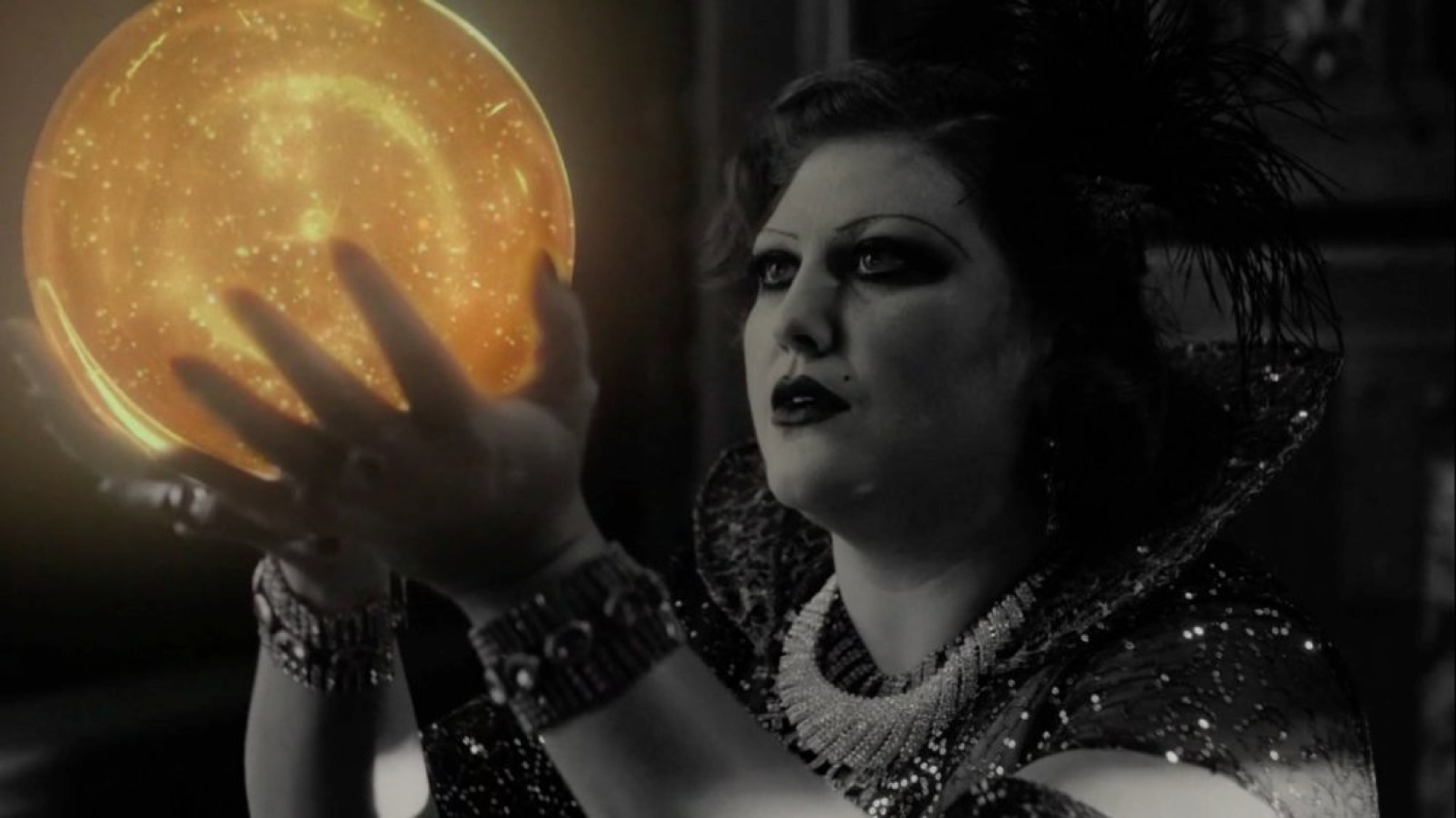
Me, reading the episode synopses so my lizard brain can comprehend
This isn’t to imply that the new Twin Peaks is a show about nothing. It’s certainly baffling out of context, but all of the random idiosyncrasies can be linked back to that unifying theme of time. Time is seemingly wasted in THE RETURN, and yet time is everything in THE RETURN. Time is a monster that eats away at bodies and minds. Time is the scale by which love and hate are measured. Time ultimately leads to a single destination, and just as with the original series, leaves us wishing only for more time. If THE RETURN’s message had to be condensed to a single thought, it’s how time destroys all things.
Time is also the most pervasive element Lynch plays with throughout the show. THE RETURN wouldn’t have the same impact without that 25-year distance separating it from its namesake. That gulf is frequently explored, not for what transpired within it, but how it shaped what followed. Our perception of the series chronology is as strained over the course of 18 episodes as it is for the characters over the decades. Episodes and scenes will jump back in forth in order of occurrence, following a nightmarish maze of dream logic rather than a linear path. Segments alternate between fleeting brevity and extending far longer than is comfortable, but always to drive a point home. Lynch may be enigmatic more often than not, but he’s never subtle.
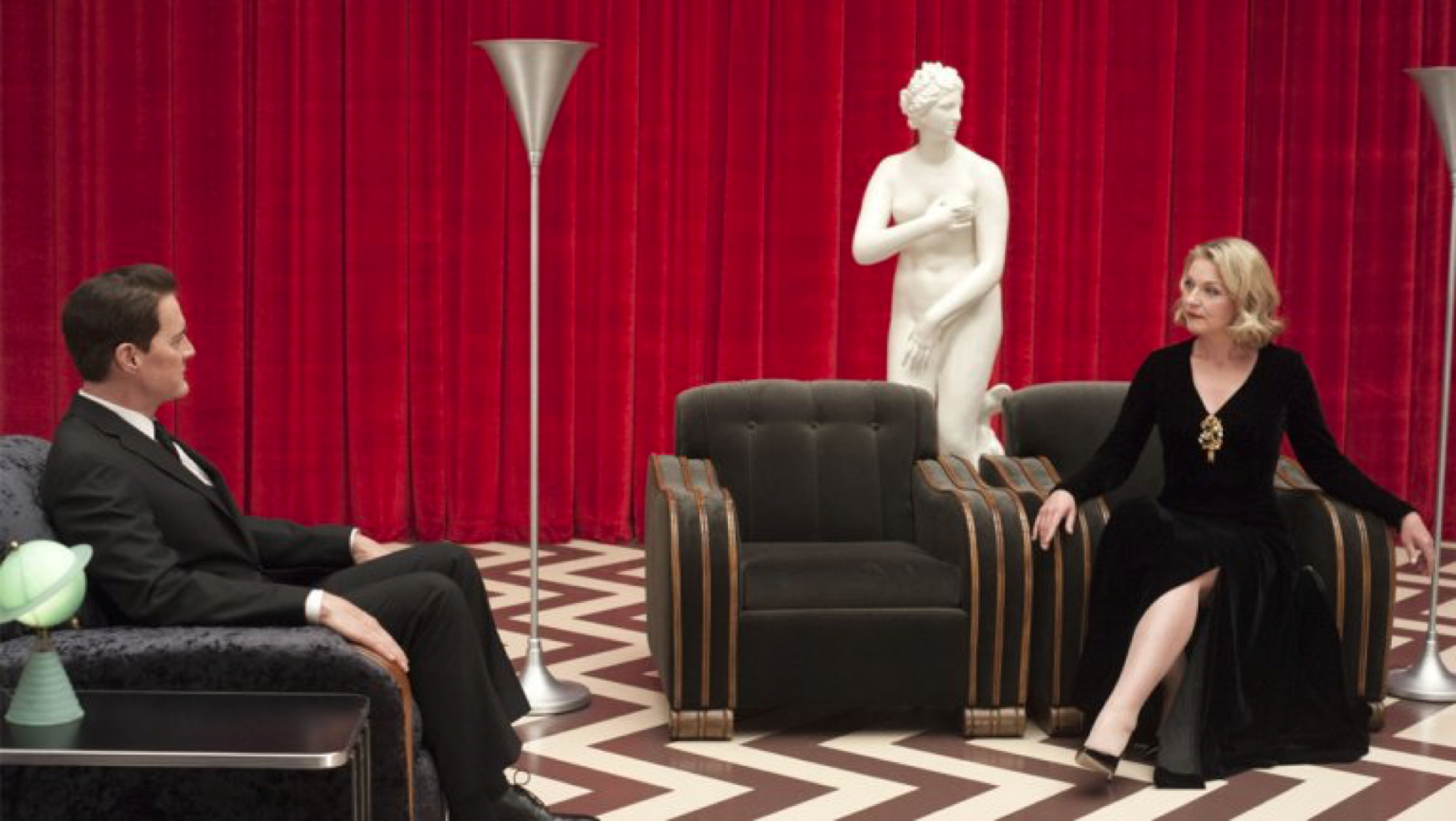
Meanwhile
It’s a struggle to think of anything about THE RETURN that warrants criticism. There are no flaws because there are no mistakes. This is easily one of the most deliberately constructed shows in the history of television. This extreme consciousness is both THE RETURN’s greatest strength and its unavoidable weakness. While Lynch can be congratulated for literally anything that happens over the course of this series, his omnipresent touch also makes traditional discussion redundant. It almost feels vapid to praise the standout performances from Naomi Watts and Jim Belushi, or to speculate over BOB and MIKE’s true origins, or to even rave about just how silly Kyle MacLachlan is as Dougie Jones. This would be ignoring what makes THE RETURN truly singular, to the point that merely appreciating these moments feels like a failure to comprehend the greater whole. More than just eschewing what it means to be Peak TV, Lynch’s overarching vision overshadows the individual moments that compose it. The sum invalidates the parts.
Still, from a purely directorial perspective, TWIN PEAKS: THE RETURN is a titan without equal. Showtime may or may not have known what they were buying when they give Lynch his check, but the result can’t be described as anything other than the director’s magnum opus. A greater auteur hasn’t been seen on screens big or small. THE RETURN is far from perfect, and its sheer unapproachability is something like a pair of cement shoes in the sea of cult, but there is nothing out there that comes close to being as distinctive or identifiable as it. Watch it one part at a time or binge it in bulk—either way, you’ve never seen anything like it.
Verdict: Recommend



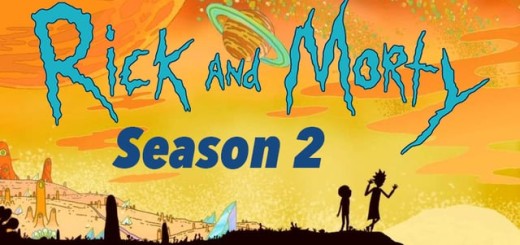
3 Responses
[…] of the rural Pacific Northwest. Not only did these stylistic similarities land Chromatics a cameo in the show’s latest season, but it also got Johnny Jewel a gig composing the aforementioned season’s soundtrack. THEMES FOR […]
[…] is a dystopian instrumental that wouldn’t be too far out of place on an episode of TWIN PEAKS, while “Revel” opens with a melody that’s a near dead ringer for “Pure Imagination,” and […]
[…] and Lynch. At its worst, it’s TEXAS CHAINSAW MASSACRE 2, THE WARD, and the trolling moments of TWIN PEAKS: THE RETURN. It’s a rocky viewing, but one I embrace with open arms. Welcome to Nicolas Cage’s BRAWL IN […]